AIEE FORMED IN 1884
TO HOST FOREIGN ELECTRICALS AT THE
INTERNATIONAL ELECTRICALS EXHIBITION
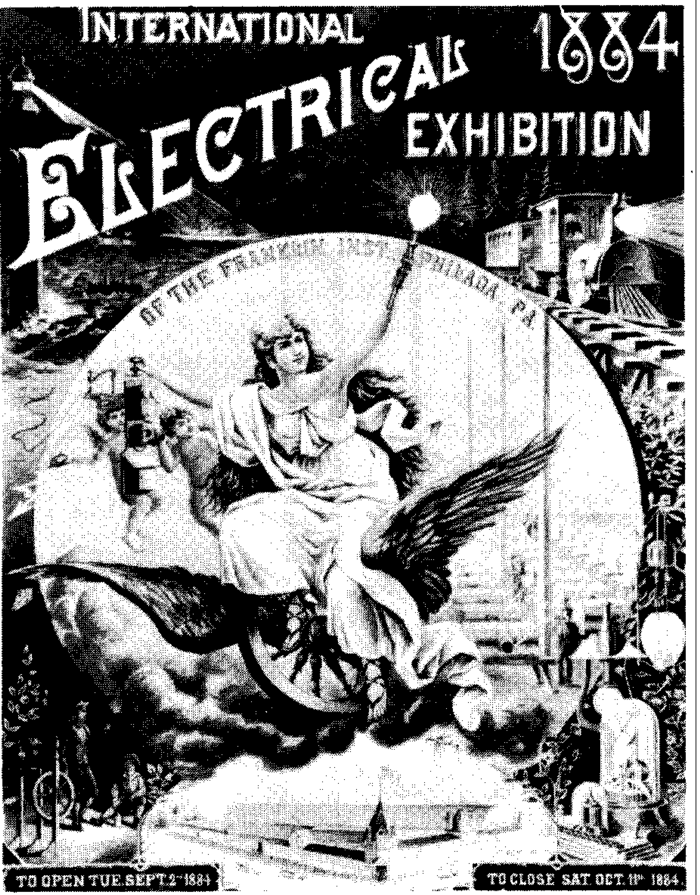
THE IEEE
(INSTITUTE OF ELECTRICAL AND ELECTRONICS ENGINEERS)
AS AN ORGANIZATION
Is a global association of engineers, scientists and allied professionals.
Whose technical interests are rooted in the electrical and computer
sciences,
and in engineering and related disciplines for the public benefit.
Were founded in 1884 and 1912.
AIEE was power and utility oriented.
IRE was radio and later electronics oriented.
The AIEE was American oriented.
The IRE was Transnational in scope.
The American Institute of Electrical Engineers
(AIEE) and the Institute
of Radio Engineers (IRE) united in 1963 to form the
IEEE.
AIEE FORMED IN 1884
TO HOST FOREIGN ELECTRICALS AT THE
INTERNATIONAL ELECTRICALS EXHIBITION

AIEE FOCUSED ON TELEG
RAPHY, AND POWER
EARLY AIEE MEMBERS
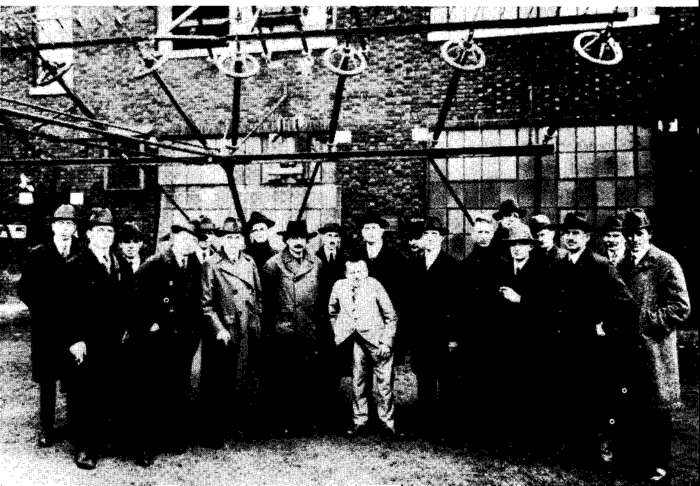
1921
IRE FORMED IN 1912
TO FOCUS ON WIRELESS RADIO
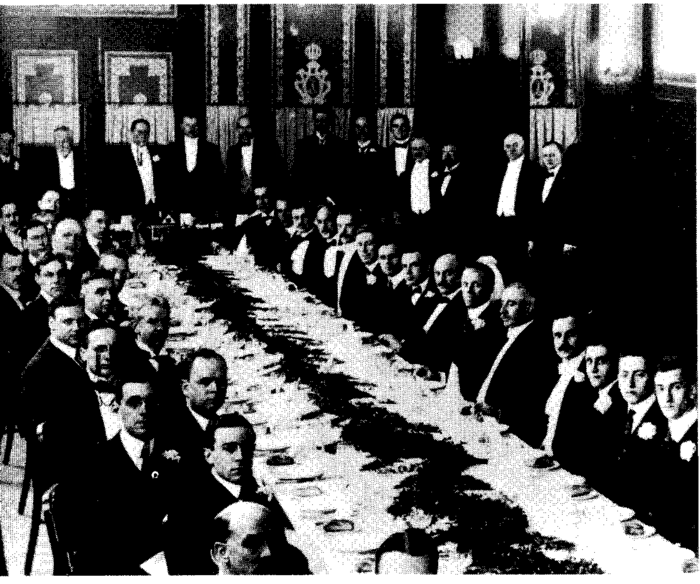
An early
meeting of IRE in NY 1915
MEMBERSHIP GROWTH DIFFERENCES WAS A BIG FACTOR IN THE MERGER OF AIEE WITH
IRE FORMING THE IEEE IN 1963
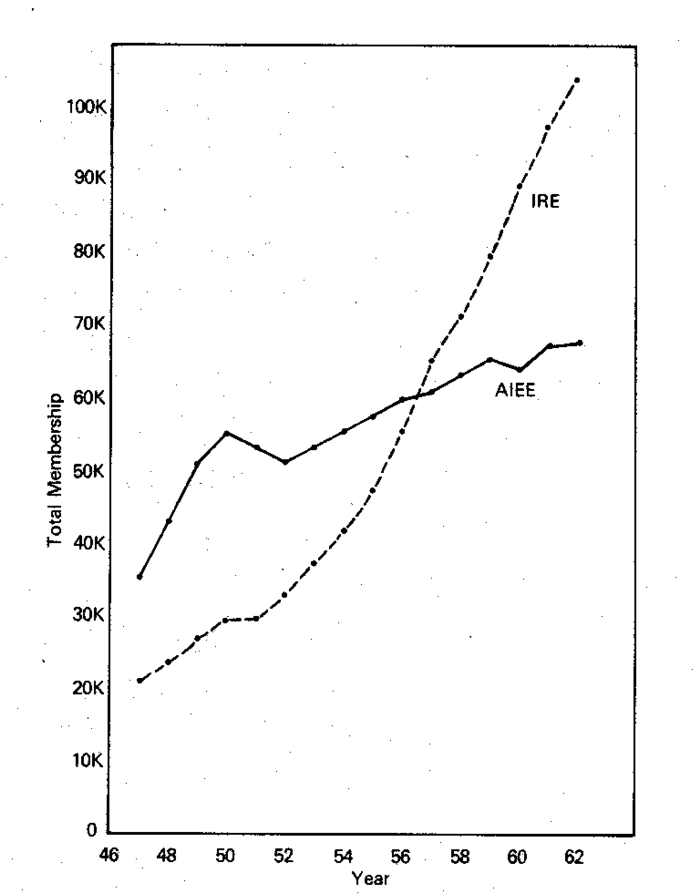
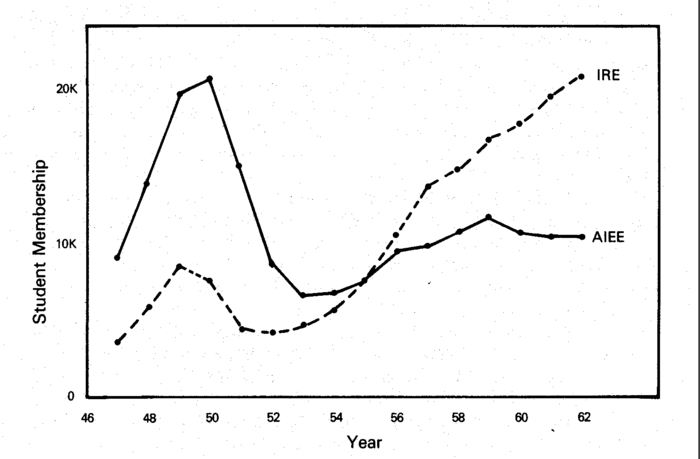
Duplication of services was also a factor.
THE AGING OF AIEE WAS A FACTOR TOO
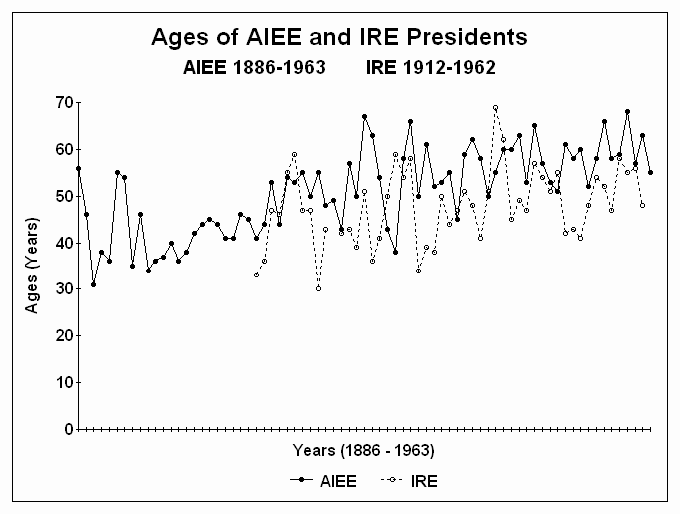
The average ages of AIEE Presidents were greater than that of IRE Presidents. AIEE represented electric/phone utility executives while IRE represented radio and electronics professionals.
THE 10 GEOGRAPHIC REGIONS OF
THE IEEE
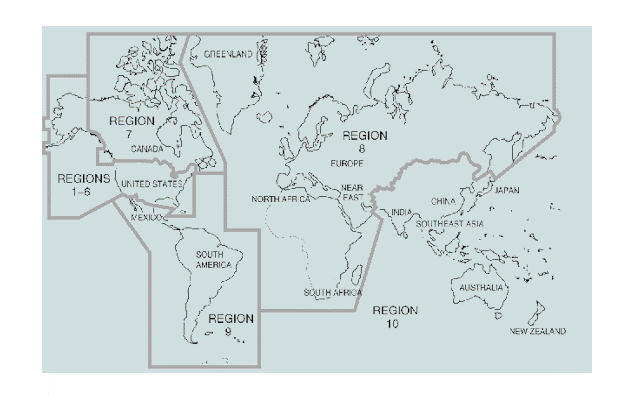
Regions 1-6 USA
Region 7 Canada
Region 8 Europe/Africa/Russia
Region 9 Central/South America
Region 10 India, China, Australia through Japan
IEEE’s Constitutional Purpose
(from 1884 til 1972)
(a) Scientific
and educational , directed toward the advancement of
the theory and practice of electrical engineering, electronics, radio and
the allied branches of engineering and the related arts and sciences; means
to these ends include, but are not limited to, the holding of meetings for
the reading and discussion of professional papers, and the publication and
circulation of works of literature, science and art pertaining thereto;
IEEE Grades of Membership
Associate - designed for technical and non technical applicants who do not presently meet the qualifications for Member grade, but who would benefit through membership
Student - must carry at least 50% of a normal full-time academic program as a registered undergraduate or graduate student in a regular course of study in IEEE designated fields.
Member - limited to those who have demonstrated professional competence in IEEE-designated fields
Senior Member - the highest for which application may be made and shall require experience reflecting professional maturity
Fellow - recognizes unusual distinction in the profession and shall be conferred only by invitation of the Board of Directors upon a person of outstanding and extraordinary qualifications and experience in IEEE-designated fields, and who has made important individual contributions to one or more of these fields
Honorary Member -elected by the Board of Directors from among those individuals, not members of the IEEE, who have rendered meritorious service to mankind in IEEE's designated fields of interest, whose recognition will bring honor to the Institute